In today’s fast-paced world, having a reliable source of power is essential for both residential and commercial applications. Portable generators have become a go-to option in ensuring we’re prepared during unexpected power outages or when electricity isn’t readily available.
However, as with any mechanical purchase, understanding the lifespan and durability of these handy machines is crucial. In this blog post, we’ll explore the factors affecting portable generator longevity and provide maintenance tips to keep your unit running efficiently for years to come.
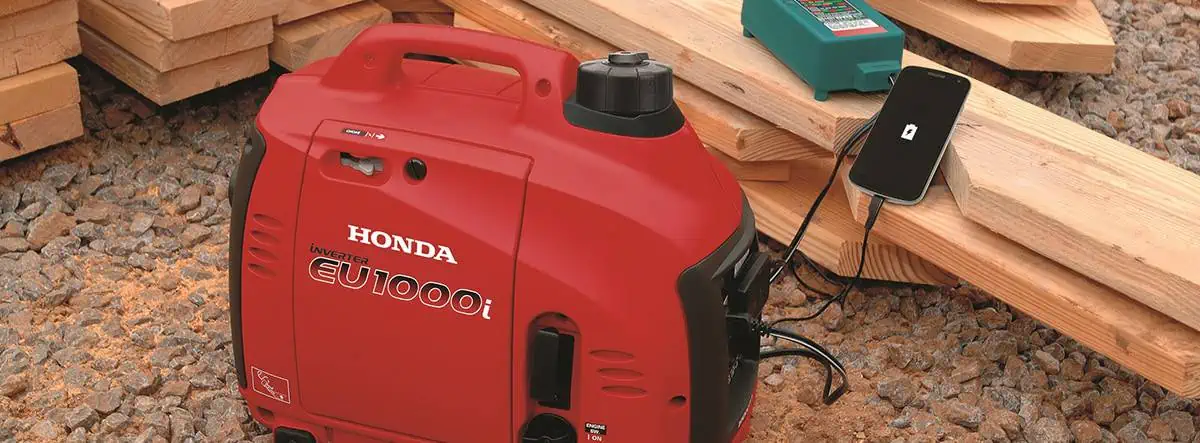
Image Credit: electricgeneratorsdirect
Key Takeaways
- Portable generators provide temporary power solutions for residential and small-scale commercial projects, while standby generators offer more extensive backup power for larger properties.
- To maximize longevity, it’s crucial to follow manufacturer guidelines on hours of operation and load capacity, keep track of usage hours, and conduct regular maintenance such as changing oil and filters.
- Environmental factors like dust and moisture can impact your generator’s lifespan; thus, adequate ventilation is necessary. Choosing the right fuel also plays a role in ensuring optimal performance while preventing internal damage to engine components over time.
- Diesel engines are known for their durability compared to natural gas engines. Regular service checks such as keeping coolant levels in check, cleaning air filters regularly prevents clogs that lead to overheating resulting in significant engine damages over time.

Image Credit: esfi
Understanding Portable Generators
Portable generators are different from standby generators in that they can be easily transported and used for a variety of applications, but they have their own pros and cons to consider.
Differences Between Portable And Standby Generators
One of the key differences between portable and standby generators is their primary intended use. Portable generators are designed to provide temporary power solutions for residential applications or small-scale commercial projects, making them ideal for situations like camping trips, outdoor events, or home power outages.
They’re typically fuel-powered (gasoline, propane, diesel) and require refueling at regular intervals. On the other hand, standby generators are permanently installed systems meant to provide more extensive backup power for larger residences or commercial properties.
When comparing noise levels and power output capabilities, portable generators generally tend to be louder because they lack insulated weatherproof housing that’s common among standby models.
Although newer technologies have lowered the noise levels of some portable units significantly (such as inverter models), they still don’t match up with the quiet operation delivered by stationary standbys.
Additionally, while portables can deliver adequate wattage for smaller needs such as powering lights and appliances during an outage; you’ll find that standby generators have a much higher capacity overall and can support entire households without breaking a sweat.
Image Credit: nationalstandby

Pros And Cons Of Using Portable Generators
As a portable generator owner, it’s essential to weigh the pros and cons of using these versatile power sources. On the plus side, portable generators are easily movable, allowing you to transport them wherever you need additional electricity – be it for outdoor events, remote work sites, or even during emergencies due to power outages.
However, there are a few downsides that come with owning a portable generator. One major drawback is the limited runtime they offer due to their smaller fuel capacity.
This means that in case of extended power outages, you may need to refuel your generator more frequently than desired – not an ideal situation when fuel availability could be scarce during disasters.
Remember that one size doesn’t fit all: understanding your unique energy needs will help you make an informed decision about whether a portable generator is right for you!
Inverter Generators Vs. Traditional Generators
As a portable generator owner, it’s essential to know the differences between inverter generators and traditional generators. Inverter generators are typically smaller, lighter, and quieter than standard generators.
This is because they generate electricity more efficiently through their unique technology—a microprocessor controlled alternator that produces AC output before converting it to DC and then back to AC—resulting in cleaner power with fewer fluctuations.
On the other hand, traditional generators use a mechanical alternator to produce power directly from the engine without any conversion process. Although they may not be as fuel-efficient or as quiet as inverter models, these conventional units often come at a lower price point and provide more powerful wattage output for larger appliances or equipment needs.
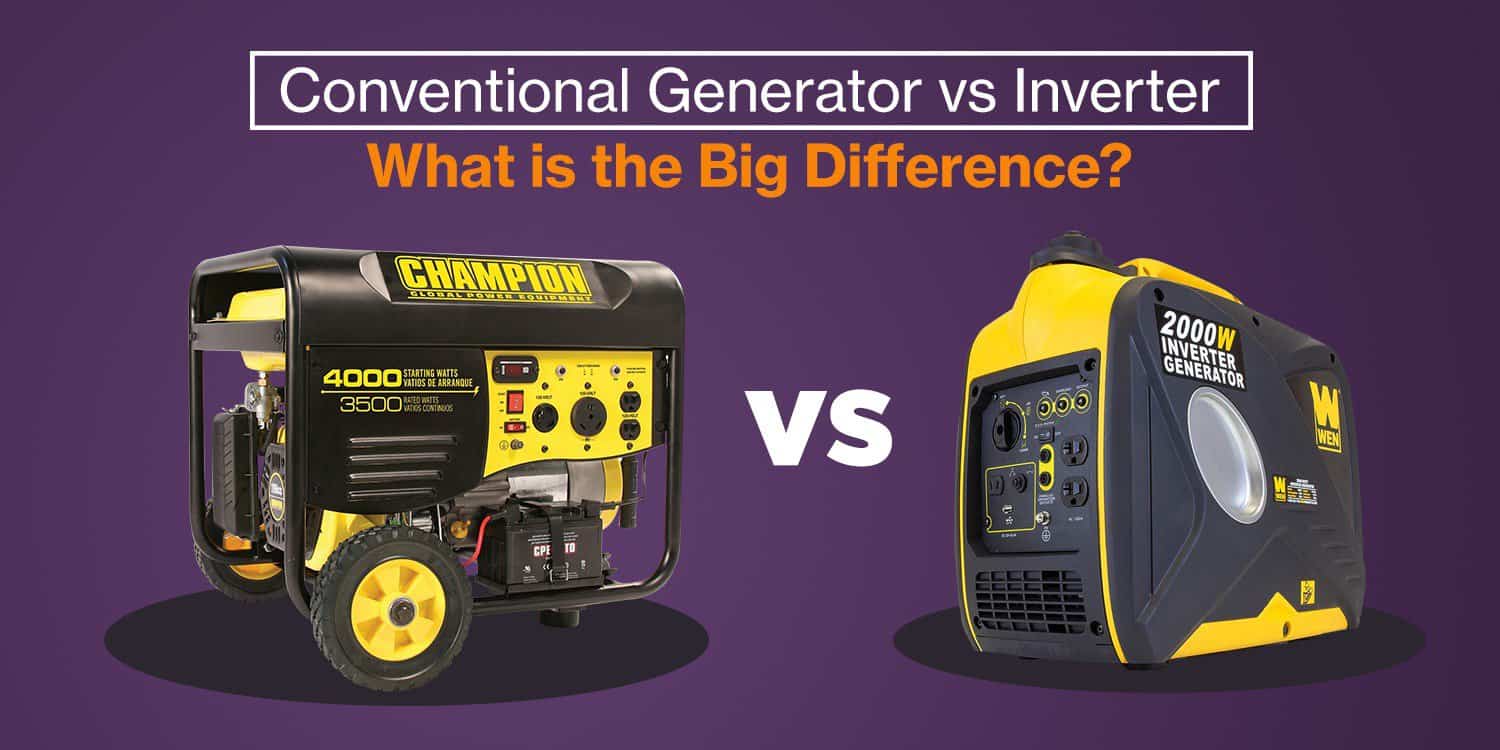
Image Credit: elephantenergy
Factors Affecting The Life And Durability Of Portable Generators
Factors that can impact the lifespan and durability of portable generators include usage and workload, proper maintenance and care, environmental factors such as dust and moisture, and the type of engine used in the generator.
Usage And Workload
As a portable generator owner, it’s important to understand how usage and workload can impact the lifespan of your equipment. The more you use your generator, the quicker it will wear out.
Additionally, running your generator at or near full capacity for long periods of time can cause excess strain on internal components and lead to premature failure.
To maximize longevity, it’s recommended to follow manufacturer guidelines on hours of operation and load capacity.
Keeping track of usage hours is critical so you know when regular service is required (such as oil changes). You should also inspect all mechanical components regularly for signs of rust or damage from dust and moisture exposure.
Image Credit: br
Maintenance And Care
As a portable generator owner, regular maintenance and care are critical to prolonging the lifespan of your unit. A well-maintained generator can operate for up to 10-20 years with proper upkeep, while a poorly maintained one may break down prematurely after only a few months.
Some crucial maintenance practices include regular oil and filter changes, keeping the generator clean and dry, inspecting and testing it regularly, using high-quality fuel and oil, following manufacturer guidelines for service intervals and parts replacement.
It’s also essential to store your generator correctly when not in use by protecting it from moisture damage and ensuring it’s on a solid surface.
Environmental Factors
As a portable generator owner, you should be aware of the impact environmental factors can have on your equipment. Dust and moisture are two natural elements that can cause damage to your generator.
When dust builds up in the engine, it can restrict airflow and affect performance.
It’s important to ensure adequate ventilation for your generator to prevent issues caused by harsh conditions or extreme temperatures. Proper installation and storage are crucial in maintaining your equipment’s lifespan and efficiency regardless of environment factors such as humidity or condensation buildup.

Image Credit: hampshiregenerators
Diesel Engines
As a portable generator owner, it’s essential to understand the differences between diesel and other types of engines. Diesel engines are known for their durability and longevity, making them an excellent choice for those who need a reliable power source during prolonged outages or emergencies.
Compared to natural gas engines, diesel engines can run longer without experiencing any significant mechanical failures. Portable diesel generators often require less maintenance and withstand harsh environmental conditions such as hot weather better.
To extend the lifespan of your diesel engine portable generator, ensure that you carry out regular service checks and follow manufacturer guidelines by keeping coolant levels in check; change oil filters regularly along with cleaning air filters because clogged filters restrict airflow which causes overheating resulting in serious damage to the engine over time.
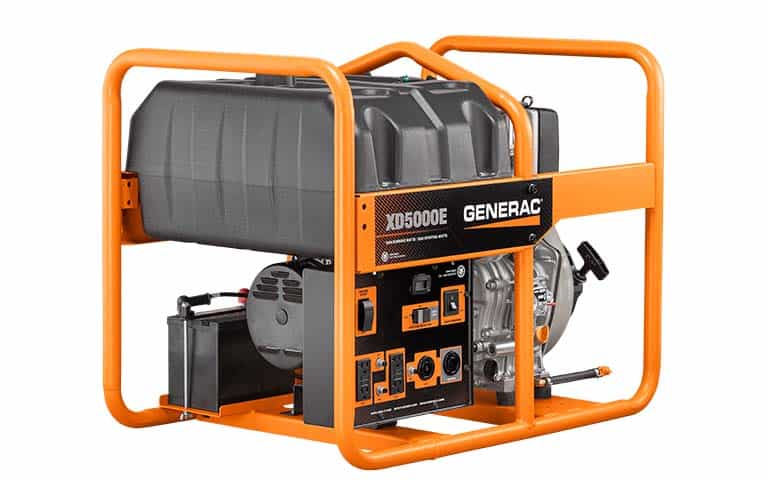
Image Credit: generac
Maintenance Tips For Prolonging Portable Generator Lifespan
Regular maintenance is vital to prolonging the life of your portable generator. Follow these simple tips for preventive maintenance, including regular oil and filter changes, keeping the generator clean and dry, proper storage, inspection and testing, and using high-quality fuel and oil.
Take care of your generator now to avoid costly repairs or having to replace it entirely in the future.
Regular Oil And Filter Changes
One of the most basic but essential maintenance tasks for portable generators is changing the oil and filter regularly. The frequency of these changes depends on usage and manufacturer guidelines, but it’s generally recommended to change the oil every 100-150 hours of use or at least once a year if you don’t use your generator frequently.
Neglecting regular oil and filter changes can lead to reduced performance, overheating, increased fuel consumption, and engine damage. Additionally, using dirty or contaminated oil can shorten your generator’s lifespan significantly.
So be sure to follow manufacturer recommendations for replacing filters too as part of routine maintenance tasks.

Image Credit: cornersmile
Keeping The Generator Clean And Dry
One of the important maintenance tips for prolonging the lifespan of your portable generator is to keep it clean and dry. Dirt, dust, and moisture can cause damage to the internal components of your generator over time, leading to reduced efficiency and even complete failure.
Additionally, storing your generator in a dry location when not in use helps prevent moisture build-up that can lead to corrosion or rust on metal parts such as fuel tanks or engine blocks.
For added protection against environmental elements during storage, consider investing in weatherproof covers designed specifically for portable generators.
Proper Storage
One of the most important factors in ensuring the longevity and durability of your portable generator is proper storage. Always store your generator in a cool, dry place to prevent dust and moisture from causing damage.
When storing your portable generator for long periods of time (more than a month), it’s recommended that you drain the fuel from the tank. This will help prevent clogs and build-up that could potentially damage your engine over time.
Remember to also disconnect any spark plugs or wires to avoid unwanted ignition during storage, and refer to your user manual for specific instructions on how best to care for your particular model.
Inspection And Testing
As a portable generator owner, regular inspections and testing are crucial to ensure your equipment runs smoothly when you need it most. This involves checking the generator’s oil levels, air filters, spark plugs, and fuel system at least once every six months or after 100 hours of operation.
Along with these routine checks, it is recommended to have a qualified technician inspect your portable generator annually or at least every two years. They can thoroughly examine the mechanical components for wear and tear, rusted connections, short circuits in field windings, or other potential issues that could lead to failure during a power outage.
High-Quality Fuel And Oil
As a portable generator owner, one of the most important things you can do to ensure that your generator lasts is to use high-quality fuel and oil.
To maximize the lifespan of your portable generator, it’s crucial to choose only high-quality fuels and oils recommended by the manufacturer. These products are specially formulated with additives that help keep engines clean, reduce emissions and noise levels, and improve overall performance.
Types Of Portable Generators
Explore the many types of portable generators, from inverter and conventional to diesel, gasoline, propane, natural gas, whole house, solar and wind turbine. Find out which model suits your needs best before investing in one.
Inverter Generators
As a portable generator owner, it’s important to consider the benefits of inverter generators. These generators produce clean and consistent power without relying on engine speed, making them more fuel-efficient and longer-lasting than traditional generators.
Inverter generators are also known for their quiet operation, which is perfect for camping trips or outdoor activities where noise levels need to be kept low.
In terms of cost, while inverter generators can be more expensive than other types of portable models, investing in a high-quality and durable option will save you money in the long run due to lower maintenance costs and better fuel efficiency.
Gentrax is one popular brand that offers reliable inverter options ideal for both residential and commercial applications.

Image Credit: walmart
Conventional Generators
Conventional generators are often more affordable than their inverter counterparts, making them a popular choice for portable generator owners. However, they do come with some tradeoffs.
Conventional generators have an output dependent on engine speed, which means sacrificing either high output or low fuel consumption/noise. This can make them less efficient and louder compared to inverter models.
That being said, conventional generators still provide reliable backup power during outages and can handle larger loads than smaller inverter models.
Diesel Generators
If you’re looking for a durable and long-lasting portable generator, then a diesel generator may be just what you need. Diesel generators are known for their longevity and can last longer than natural gas engines.
One of the advantages of using a diesel generator is that it can handle heavy loads without breaking down easily. This makes it an excellent choice for commercial applications where constant power supply is essential.
On the other hand, if you only require occasional use of your portable generator, then a gasoline or propane-powered model might be more suitable.

Image Credit: cummins
Gasoline Generators
Gasoline generators are a popular choice for portable residential power needs due to their cost-effectiveness and availability. They can come in various sizes, from small, compact models suitable for outdoor activities to larger units capable of powering appliances during power outages.
However, it’s essential to keep in mind that gasoline has a shorter shelf life than other fuel types such as propane or diesel. It’s crucial always to use fresh gasoline when refueling your generator and store excess fuel properly.
Additionally, gasoline-powered generators tend to be louder than other fuel types, so consider the noise level before purchasing one.
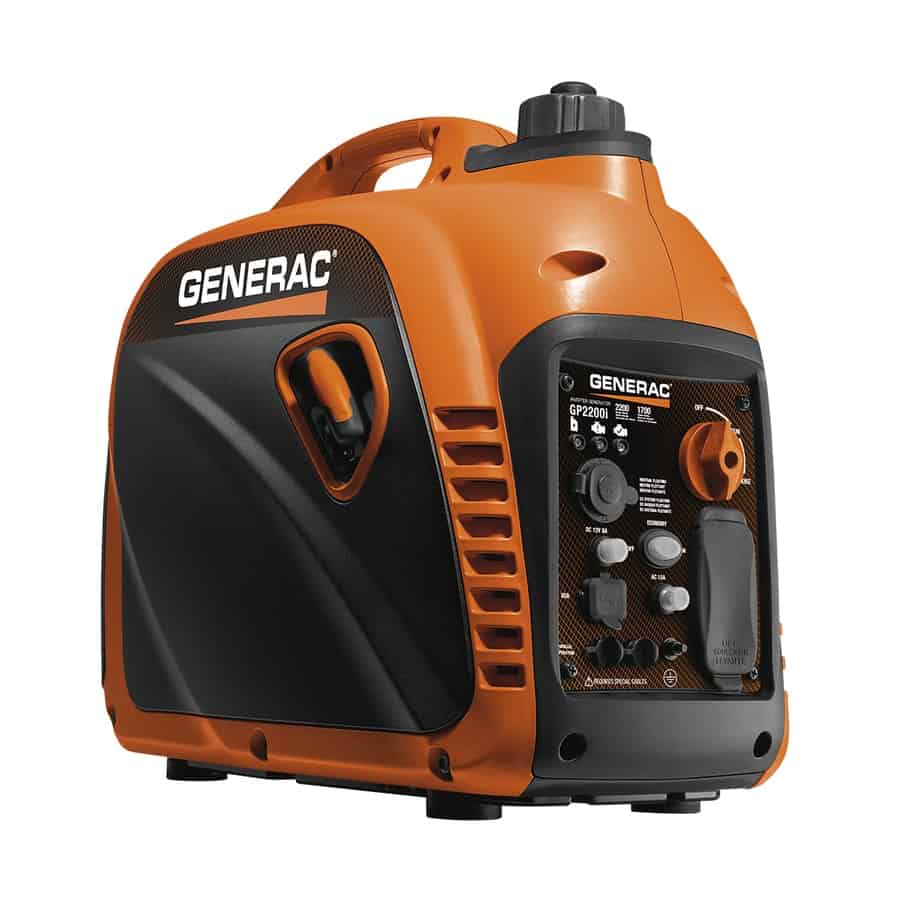
Image Credit: lowes
Propane Generators
As a portable generator owner, you may want to consider propane generators as an alternative power source. Propane has many advantages over other types of fuels, including its longer shelf life and greater stability.
In fact, propane gas generators are more reliable compared to diesel and gasoline generators. Additionally, propane generators have a higher capacity than their counterparts running on diesel or gas.
A standard dual fuel generator can last anywhere from six to twelve hours on propane – depending on multiple factors such as load size and engine tuning.

Image Credit: kacangsanchainci
Natural Gas Generators
As a portable generator owner, you may be wondering about the benefits and drawbacks of natural gas generators. One of the most significant advantages is their cost-effectiveness – natural gas is one of the most affordable fuel options available.
They are also considered highly dependable for backup power systems in residential or commercial applications.
When it comes to choosing between fuel types for backup generators, factors like availability, accessibility, ease of use should be taken into account alongside price considerations.
Natural gas might not be suitable for all situations but can prove advantageous to your specific needs when compared with other fuels such as propane or gasoline-powered engines.

Image Credit: wonderfulengineering
Whole House Generators
If you are looking for a generator to power your home during an outage, whole house generators are one option to consider. These generators offer the ability to power all of the appliances and systems in your home, including heating and cooling units, refrigerators, and lighting.
When considering a whole house generator as an option, it is important to take into account factors such as the size of the generator itself, installation costs and maintenance requirements.

Image Credit: peninsulaheatingandair
Solar Generators
As a portable generator owner, you might be interested in learning about solar generators. These generators use solar panels to capture the sun’s energy and store it in a battery for later use.
They are a combination of a power station and a solar panel.
According to CNN Underscored, tests conducted on 13 solar generators paired with portable solar panels found some great options available on the market today. Unlike other types of portable generators, which may only last around 10-20 years, these innovative devices have an impressive lifespan of up to 20 years.

Wind Turbine Generators
I bet you didn’t know that there are wind turbine generators available for those looking to harness the power of wind energy! Wind turbines work by using the kinetic energy from wind and converting it into electrical energy.
There are two types of turbines used for this purpose: fixed-speed and variable-speed. Fixed-speed turbines use a specific velocity of wind to operate, while variable-speed turbines adjust their speed according to the velocity of the wind.
It’s worth noting that these generators have an average lifespan of 20 years, but they require routine maintenance every six months to ensure optimal performance.
Image Credit: acim

Image Credit: solarfeeds
Choosing The Right Portable Generator For Your Needs
Assessing your power needs, considering mobility and noise levels, and evaluating fuel efficiency are all important factors to consider when choosing the right portable generator for your specific needs.
Assessing Power Needs
As a portable generator owner, it’s crucial to assess your power needs before purchasing or operating a generator. The amount of electricity you need will depend on the appliances and devices you plan to run during an outage or outdoor event.
For example, a small 900-watt generator can power basic electronics like laptops and phones, while a larger 15,000-watt model can keep your entire home running smoothly. It’s essential to consider wattage needs carefully when selecting a portable generator as overloading the unit could cause serious damage or even injury.

Runtime And Fuel Efficiency
As a portable generator owner, one of the most important factors to consider when choosing and using your unit is runtime and fuel efficiency. The efficiency of the generator’s engine affects the amount of fuel consumed per hour, which ultimately affects how long you can run the generator on a single tank.
Fuel-efficient generators are able to run longer on the same amount of fuel, which saves both money and time. For example, natural gas generators can run continuously if gas lines are operational and do not require a fuel tank.
Portability And Mobility Considerations
When it comes to portable generators, it’s important to consider the portability and mobility of the unit. You’ll want a generator that can be easily moved from one location to another without too much hassle.
Think about factors such as weight, size, and handle placement.
Another factor to consider is whether you will need your generator in a stationary position or if you plan on moving it frequently. For stationary use, size and weight may not matter as much since you won’t need to move it around often.
However, if you plan on using your generator for tailgating or camping trips where mobility is key, then a lighter and more compact model would likely suit your needs better.
Ultimately, finding the right balance between portability and functionality will depend on how you plan on using your portable generator most often – just remember that there are plenty of options available so do check out various types before making decisions!

Image Credit: homedepot
Noise Level
As a portable generator owner, one of the factors you will always want to consider is the noise level of your unit. Modern standby, RV, and portable generators are far quieter and more neighborhood-friendly than old machines that had a reputation for being noisy.
Portable generators typically have a noise level ranging from 50 decibels, which is comparable to the sound of a running refrigerator, to 60. However, choosing an ultra-quiet design could be essential if using it for backup or off-grid power as a noisy generator can be incredibly annoying.
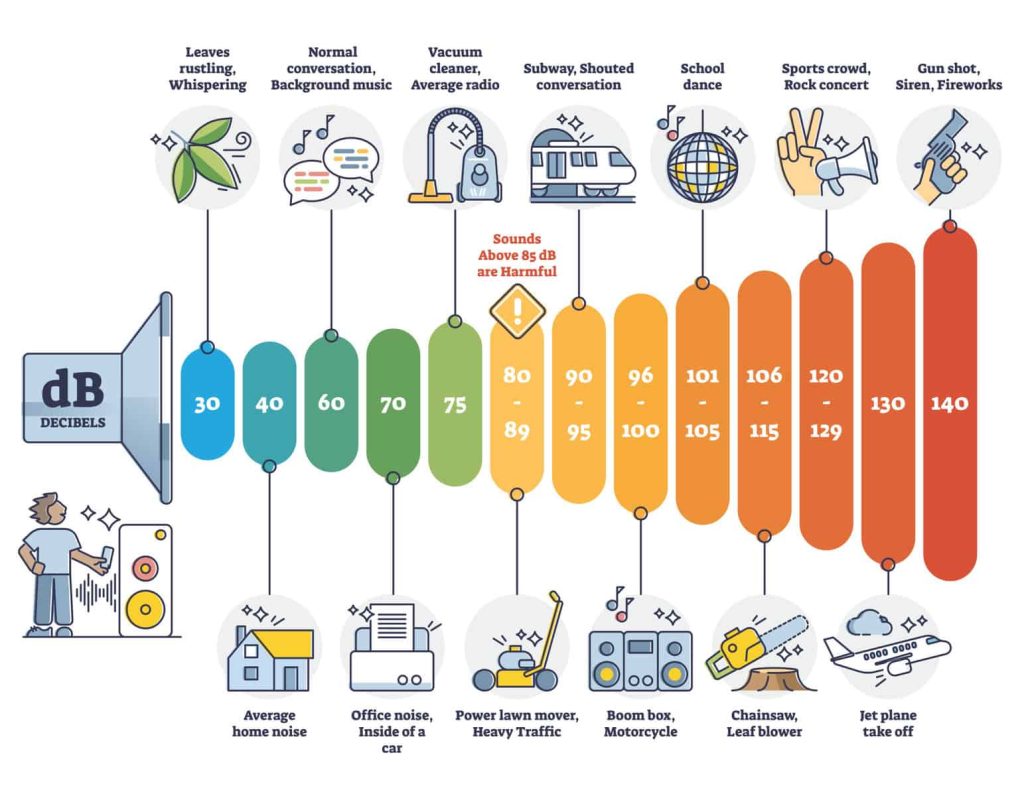
Energy-Efficient Appliances
As a portable generator owner, it’s important to consider the energy needs of your appliances when selecting the right size generator. Energy-efficient appliances use less power, which means they require fewer watts to operate and can help you save money on fuel costs.
Examples of energy-efficient appliances include LED light bulbs, refrigerators with inverter compressors, and air conditioners with higher SEER ratings.
If you’re unsure about the wattage needs of your specific appliances, consult the manufacturer’s guidelines or seek advice from a qualified technician. It’s also worth noting that some whole house generators come equipped with battery backup systems for select energy-efficient appliances, allowing them to run even during an outage without draining excess fuel from your generator.
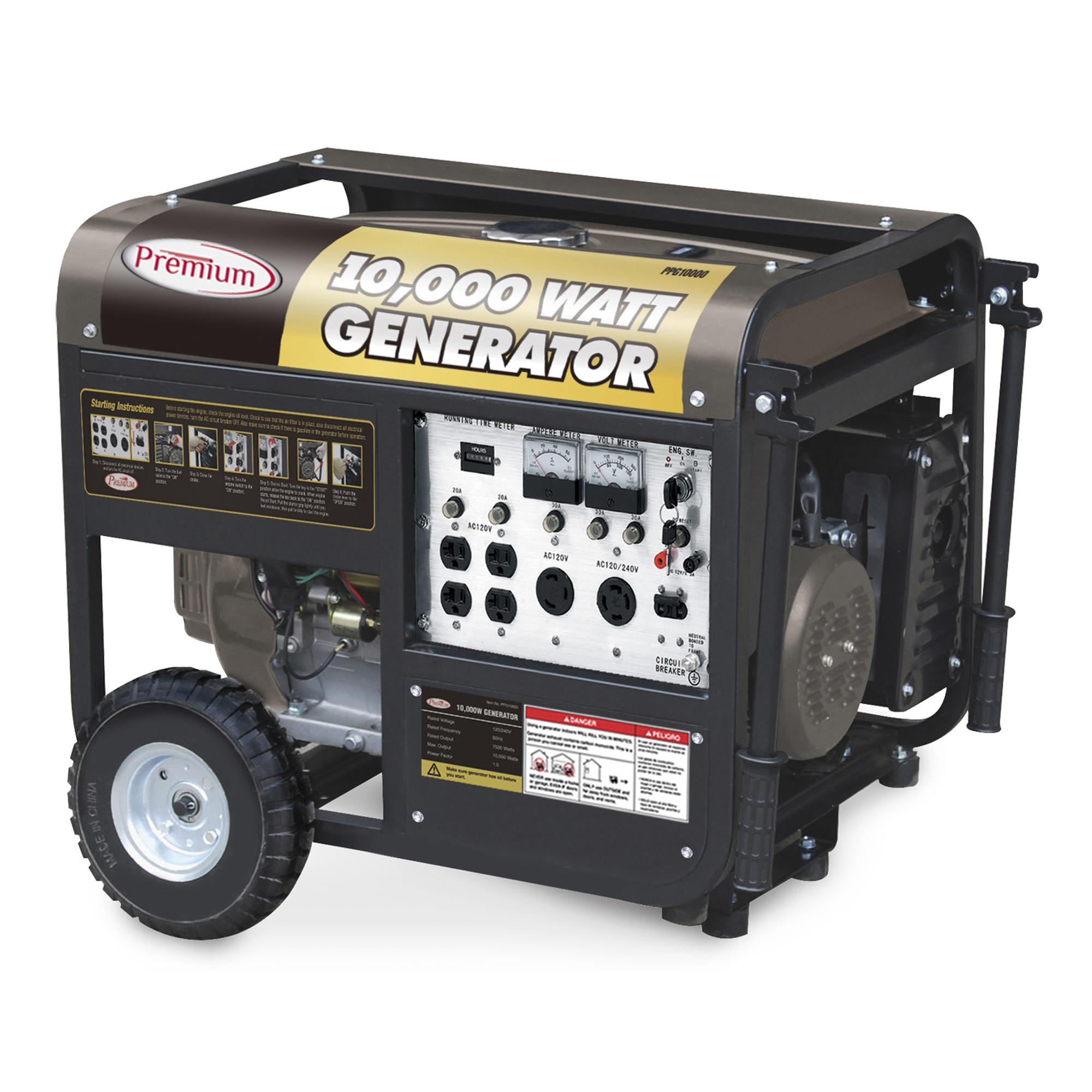
Image Credit: premiumus
Conclusion
In conclusion, portable generators are a reliable source of power when you need it the most. Whether you’re using them for residential or commercial purposes, understanding their lifespan and durability is essential.
With regular maintenance and proper care, these mechanical beasts can last up to 20-30 years or more. Choosing the right generator with the appropriate power output and fuel efficiency can save you money in the long run.
So make sure to follow manufacturer guidelines and inspect your equipment regularly to prevent any unwanted downtime during a power outage.
How long can I expect a portable generator to last?
The lifespan of a portable generator depends on multiple factors, such as the quality of its components and how often it is used. A well-maintained generator should last for 10-20 years if properly cared for.
What steps can I take to increase the longevity of my portable generator?
To maximize your portable generator’s lifespan, you should regularly service it by changing its oil and air filter, keeping it clean and dry when not in use, and storing it in a safe location away from extreme temperatures or moisture.
Can I repair my portable generator if it breaks down?
In many cases, yes—portable generators are designed with easily replaceable parts like spark plugs or carburetors that can be fixed even by those without extensive mechanical knowledge. More complex issues may require professional repairs though.
Should I purchase an extended warranty for my portable generator?
An extended warranty could provide peace of mind while also protecting against unexpected malfunctions or damages that occur outside of the manufacturer’s standard warranty coverage period.. However – they aren’t always necessary depending upon risk tolerance levels & frequency/utility desired from use-case scenarios; factoring these variables helps determine whether additional costs associated with warranties outweighs potential risks involved over time.





